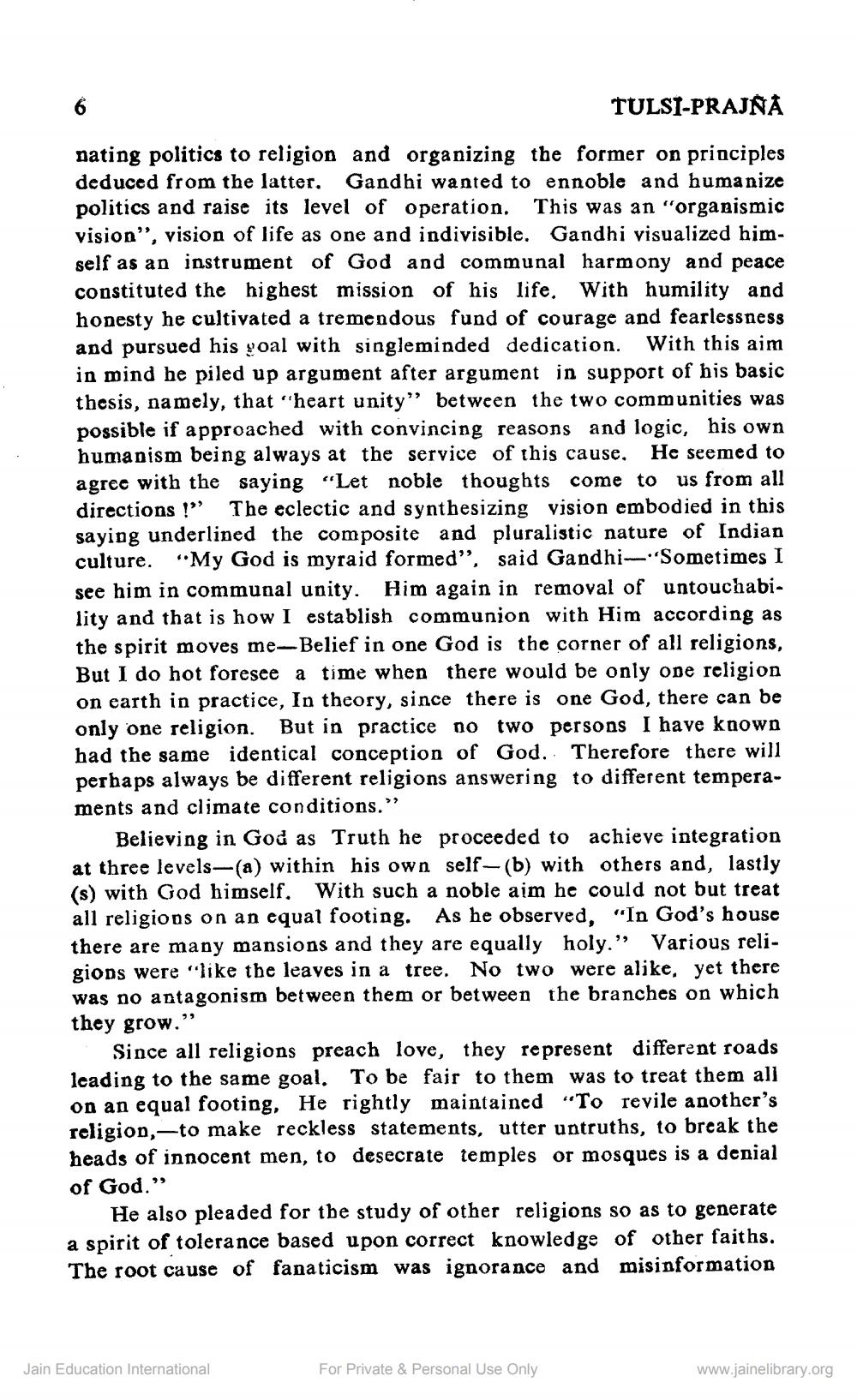________________
6
TULSI-PRAJŇA
nating politics to religion and organizing the former on principles deduced from the latter. Gandhi wanted to ennoble and humanize politics and raise its level of operation. This was an "organismic vision", vision of life as one and indivisible. Gandhi visualized himself as an instrument of God and communal harmony and peace constituted the highest mission of his life. With humility and honesty he cultivated a tremendous fund of courage and fearlessness and pursued his goal with singleminded dedication. With this aim in mind he piled up argument after argument in support of his basic thesis, namely, that "heart unity" between the two communities was possible if approached with convincing reasons and logic, his own humanism being always at the service of this cause. He seemed to agree with the saying "Let noble thoughts come to us from all directions !" The eclectic and synthesizing vision embodied in this saying underlined the composite and pluralistic nature of Indian culture. "My God is myraid formed", said Gandhi-Sometimes I see him in communal unity. Him again in removal of untouchability and that is how I establish communion with Him according as the spirit moves me-Belief in one God is the corner of all religions, But I do hot foresee a time when there would be only one religion on earth in practice, In theory, since there is one God, there can be only one religion. But in practice no two persons I have known had the same identical conception of God. Therefore there will perhaps always be different religions answering to different temperaments and climate conditions."
achieve integration others and, lastly could not but treat
Believing in God as Truth he proceeded to at three levels-(a) within his own self- (b) with (s) with God himself. With such a noble aim he all religions on an equal footing. As he observed, "In God's house there are many mansions and they are equally holy." Various religions were "like the leaves in a tree. No two were alike, yet there was no antagonism between them or between the branches on which they grow."
Since all religions preach love, they represent different roads leading to the same goal. To be fair to them was to treat them all on an equal footing, He rightly maintained "To revile another's religion, to make reckless statements, utter untruths, to break the heads of innocent men, to desecrate temples or mosques is a denial of God."
He also pleaded for the study of other religions so as to generate a spirit of tolerance based upon correct knowledge of other faiths. The root cause of fanaticism was ignorance and misinformation
Jain Education International
For Private & Personal Use Only
www.jainelibrary.org




